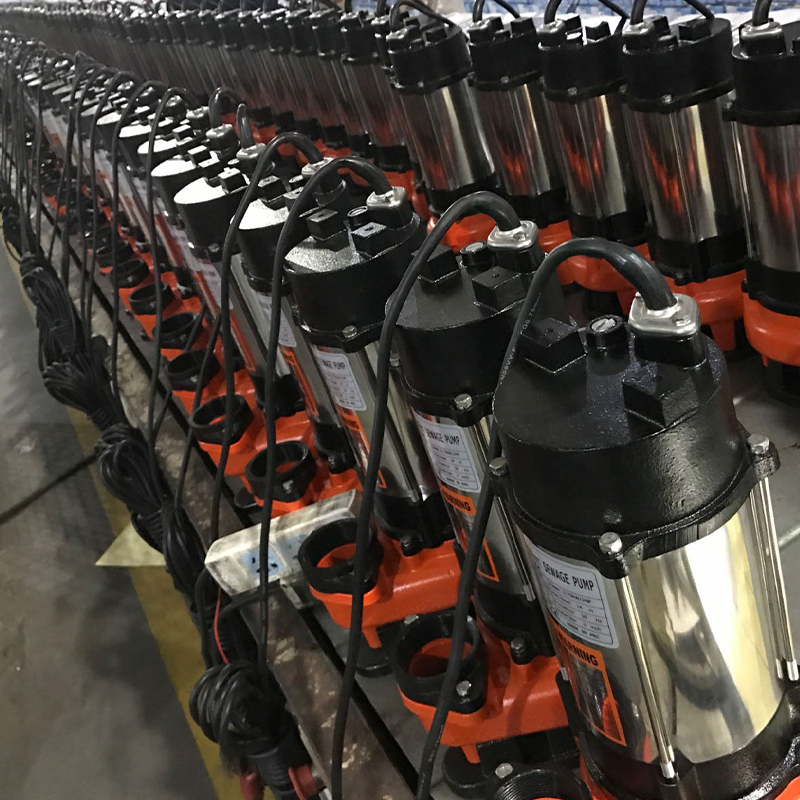QD Multi-Stage Robust Submersible Pump for Agriculture and Mining
The Multi-Stage Robust Submersible Pump is a versatile and reliable so...

Centrifugal pumps are among the commonly used pumps in industries ranging from water treatment to agriculture and manufacturing. Their popularity stems from their ability to handle a wide range of fluid applications efficiently. A Centrifugal Water Pump Manufacturer often provides these pumps alongside other types, such as positive displacement, diaphragm, or peristaltic pumps.
Operating Principle
Centrifugal pumps operate by converting rotational energy from a motor or engine into kinetic energy, which then moves fluid outward from the pump's center. This allows for continuous flow, making centrifugal pumps suitable for high-volume applications. In contrast, positive displacement pumps move a fixed volume of fluid with each cycle, offering precise control over flow but often at lower volumes. A Centrifugal Water Pump Manufacturer highlights that the simple design of centrifugal pumps results in fewer moving parts, which can reduce maintenance needs compared to some other pump types.
Flow and Pressure Characteristics
Centrifugal pumps are good suited for applications requiring moderate pressure and high flow rates. Their performance depends on factors such as impeller size, speed, and system resistance. Positive displacement pumps, on the other hand, can generate higher pressures at lower flow rates, making them ideal for tasks that require precise dosing or pumping of viscous fluids. Diaphragm and peristaltic pumps are also suitable for handling thick or chemically aggressive fluids, areas where centrifugal pumps may be less effective. A Centrifugal Water Pump Manufacturer typically recommends selecting the pump type based on the combination of flow rate and pressure required for the system.
Versatility and Applications
Centrifugal pumps are versatile and can handle water, light chemicals, and other low-viscosity fluids. They are commonly used in irrigation, water supply, HVAC systems, and industrial processes. Positive displacement pumps find applications in chemical dosing, oil transfer, and food processing, where exact volumes are critical. Diaphragm and peristaltic pumps are often chosen for corrosive fluids or sanitary applications. A Centrifugal Water Pump Manufacturer may offer specialized impeller designs to expand the range of fluids and operating conditions suitable for centrifugal pumps.
Maintenance and Durability
Maintenance requirements differ significantly between pump types. Centrifugal pumps generally have simpler construction and fewer wear-prone components, which can reduce downtime and maintenance costs. Positive displacement pumps often require more frequent inspection and adjustment of seals and gears. Diaphragm and peristaltic pumps involve wear of flexible components, such as diaphragms or tubing, which may need replacement over time. A Centrifugal Water Pump Manufacturer emphasizes the importance of regular inspection and lubrication to maintain pump efficiency and extend service life.
Cost and Energy Considerations
Centrifugal pumps typically have lower initial costs and operate efficiently for continuous, high-volume pumping. However, their energy efficiency may decrease if used outside the optimal operating range. Positive displacement pumps consume consistent energy regardless of flow conditions but are generally more expensive upfront. Diaphragm and peristaltic pumps are costlier for high-volume applications but excel in specialized scenarios. Understanding these trade-offs helps users make informed decisions based on both operational efficiency and budget.
Centrifugal pumps offer a balance of high flow rates, moderate pressure, and relatively low maintenance, making them suitable for many common applications. Compared to positive displacement, diaphragm, or peristaltic pumps, they are less precise in volume control and may be less effective for viscous or aggressive fluids. A Centrifugal Water Pump Manufacturer provides guidance on selecting the appropriate pump type for each application, taking into account fluid characteristics, flow and pressure requirements, and maintenance considerations. By understanding the strengths and limitations of centrifugal pumps relative to other types, users can ensure efficient and reliable performance in their systems.